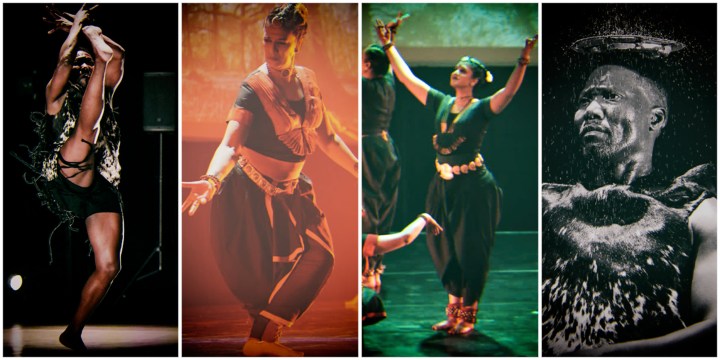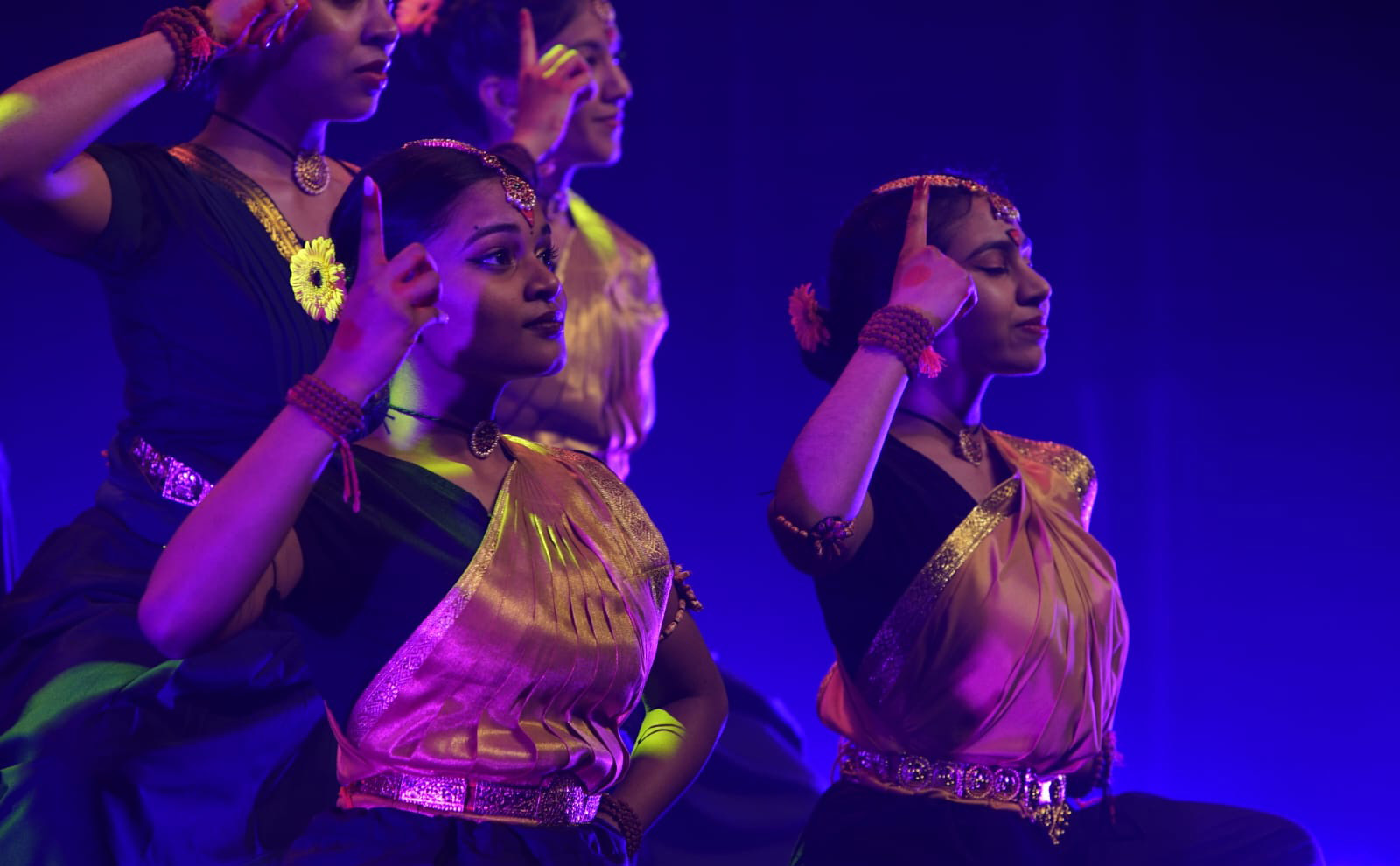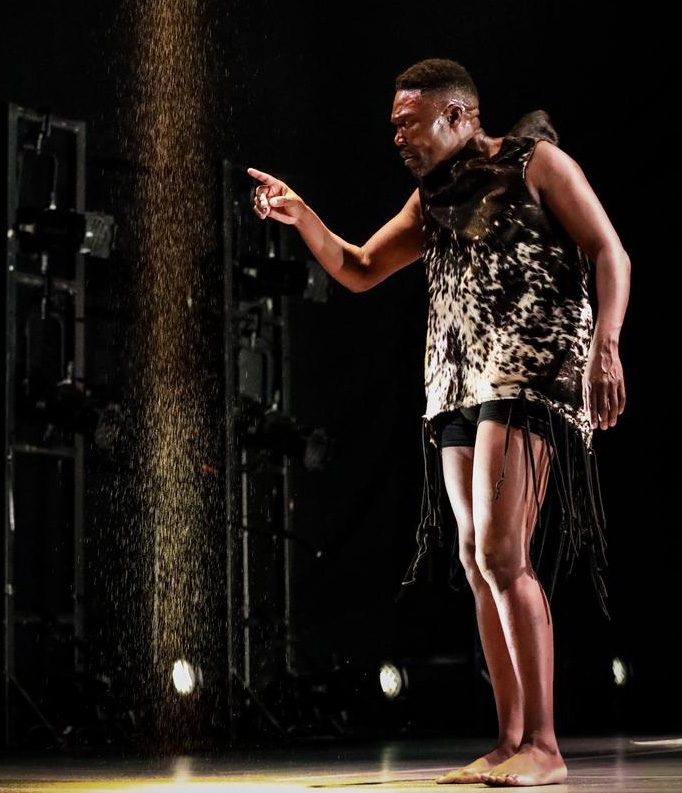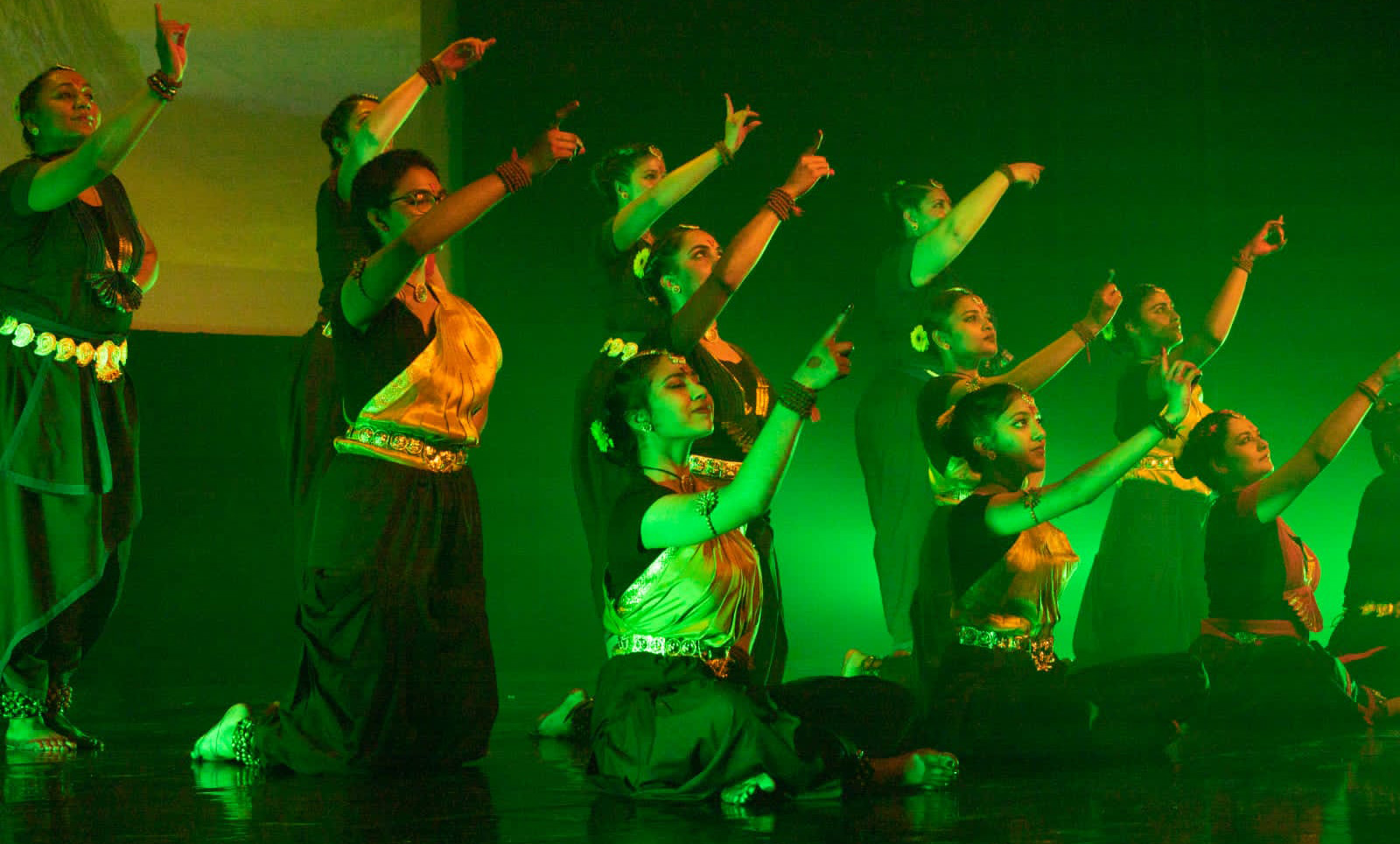ARTIVISM
The irrepressible force within us — conjuring a tale of two dances

Two outstanding South African dance performances — Exit/Exist and Bhūmi — immerse you in a total experience of music and movement that unleash meanings and unchain your senses. You are taken not away from the world, but into the heart of its suppressed meanings.
Recently I attended two different dance performances on two consecutive nights: Greg Maqoma’s Exit/Exist at the Market Theatre and the Sarvavidya Dance Ensemble’s (SDE) Bhūmi (meaning ‘Earth’ in Sanskrit) at the Lesedi/Joburg Theatre.
On the surface, the dances could not be more different.
Maqoma’s a modern African ballet; the SDE’s based on the traditional Indian dance practice of Bharatnatyam, with a musical accompaniment drawn from Sanskrit prayers and meditations and a splice of Marvel.
Exit/Exist from a professional dance company, the Vuyani Dance Company; Bhūmi created, directed and danced by the professional team of Anusha Pillay, Reshma Chhiba and Panna Dullabh, but including amateur dancers with other day jobs.
Maqoma’s choreography and performance of his solo was pinpoint precise, a controlled explosion of movement, dance that does the talking to the beautiful guitar accompaniment of Giuliano Modarelli, and outstanding vocalists Tobela Mpela, Sizwe Nhlapo, Lubabalo Velebayi and Sipho Mhlanga.
Bhūmi was performed by an ensemble of 12 dancers, constantly transforming through dance and light into trees, crabs, giraffes, peacocks, whales and humans, in traditional dance movements that carried from their facial expressions to the tips of fingers.
Both dances unfold tragedies in a true Shakespearean fashion.
Exit/Exist, which first premiered at the Market Theatre in 2012, choreographs the rise of Maqoma’s ancestor Chief Jongumsobomvu Maqoma and his demise at the hands of the British colonialists. Maqoma, born in 1798, was one of the most renowned Xhosa leaders. He led the so-called Xhosa cattle rebellion and was later arrested after he mobilised an army of 10,000 men against English colonisers who had settled on Xhosa land.
In total, he spent 21 years as a prisoner on Robben Island and died in 1873, reportedly “of old age and dejection”.

Scenes from Bhūmi, created and directed by Anusha Pillay, Reshma Chhiba and Panna Dullabh, at the Lesedi/Joburg Theatre. (Photo: Zen Marie)
Language and resistance
Greg Maqoma is a legend of South African dance. He is turning 50 in October. Exit/Exist is his last public performance. As he retires from being one of the Vuyani Dance Company’s lead dancers his legacy is described as “telling groundbreaking stories as a way of social commentary.”
Exit/Exist’s Director, James Ngcobo, says “We needed the story of Maqoma to have a conversation about the contemporary landscape that we are navigating.” One wonders if Ngcobo means the story of both Maqomas?
And here’s the rub: our contemporary political landscape, where these ancient conflicts play out again and again and again, with more bloodshed and less resolution, risks being stripped of memory and history. Allowing this impacts on humanity’s ability to make meaning; leaving us rudderless and prone to computer-generated fake pasts and futures.
This makes Exit/Exist much more than social commentary. It is a dance giving physical form to a kind of scream from the past that is trying to make itself heard in the present.
By contrast, the SDE’s Bhūmi is the tragedy of our earth, with its human inhabitants as both its collective heroes and antiheroes, gods and devils, creators and destroyers, responsible for our/its demise. It begins depicting a kind of naive harmony of species and planet, trees restored to the centre of all animal activity, and ends in a cacophonous mess, with the primal scream of the harpooned whale, the creak of the felled ancient tree.
It allows trees which — if you look around you — you will notice are almost everywhere despite our assault on them (the tree narrator at one point laments the felling of 800 million trees in the Amazon over the last six year), to be the historians of our demise.
For just over an hour both performances immerse you in a total experience of music and movement that unleashes meanings, unchains your senses; you are taken not away from the world, but into the heart of meaning. You escape in order to reenter through a different door. Your soul is separated from dormant emotions that we have lost in everyday life, and rudely re-awakened; your senses collide; you are sucked into questions about values, what excites you and why, what matters … and what doesn’t.

Greg Maqoma in Exit/Exist. (Photo: Arthur Dlamini)
The power within our bloodied heritage
At a more intellectual level, my reaction to the dances played out on several levels.
First of all, I was struck again by the unique creativity that resides within us, the people of South Africa and its subversive power. The peoples of SA are not unique by accident: we are unique because for four centuries we have been forged in a melting pot of opposites — hate and love, conquest and resistance, black and white, a land that gives and takes. From this, our identity, meaning and expression have congealed.
Given a chance, thanks to groups like VDC and SDE, we are able to unleash that creativity on the world.
Secondly, I realised again the power of art and culture as an insurgent force to speak in a language that has vacated almost all political discourse, a language which strips back our social accretions and pretences until what is left is just the core set of emotions and needs on which the conscious human is founded.
Read more in Daily Maverick: Ballet Black: SA dancer brings miners’ blood, sweat and tears to British stage
Art has a prophetic power; it offers a reordering of reason and meaning, it speaks through a language that breaks beyond grammatical patterns that constrain thinking, out of platitudes and pre-cooked strings of sentences that we use without thought.
It pushes us back towards finding meaning.
That is the very reason why it is marginalised, regarded as a leisure activity, not politics.
In Bhūmi the seasons of human existence are rehearsed; spring, hope; summer/birth and joy; succumb over time as we misunderstand our power and relationship to the world. They lead us inexorably into the autumn and coming winter of our current discontent. The dance crescendos, and as it does your own emotions build. There comes a point where you feel like you might burst.
Bhūmi brought back to me a memory of the power of performance as grief and solidarity, summoning back to mind something we experienced unexpectedly in the early days of the Aids epidemic.
At the first National Congress of the Treatment Action Campaign (TAC) in 2000, with the Aids epidemic now rampaging through poor and black communities, we agreed to a group of activists staging a play about Aids before the assembled delegates. However, the play was so raw and real, puncturing denial and shame, admitting a pain that people were expected to hide, that it caused a crisis in the conference as delegate after delegate broke down. Grief counsellors had to be found and the conference stopped for several hours.
At points, I wondered whether the same might happen during Bhūmi.
After Greg Maqoma’s performance, the audience was left to process its own emotions. However, each performance of Bhūmi was followed by a short discussion to advance the play’s expressly artivist agenda: helping us to think about the environmental and climate crisis and how we can respond to it at a human and community level.
Finally, one of the obvious things that struck me was the power of art to create conversation, to change minds, and to help people find the vocab to have the difficult conversations about the crisis we face in a language that is their own.

Scenes from Bhūmi, created and directed by Anusha Pillay, Reshma Chhiba and Panna Dullabh, at the Lesedi/Joburg Theatre. (Photo: Zen Marie)
Read more in Daily Maverick: On reading poetry and quarrelling with myself
As Louisa Zondo, one of the after-performance speakers, puts it in her recently launched book Dearest MaRiky:
“Humanity is stuck in the stories of decayed political, economic, social, cultural and environmental systems, which perpetuate the violence and unsustainability of coloniality, misogyny, racism and greed. It seems that the frameworks proposed as alternatives to the decayed systems replicate the violence and unsustainability and therefore do not contribute to the dismantling of oppression.”
Based on her own painful experiences, including the suicide of her son Rikhado ‘Riky Rick’ Makhado, Zondo asserts that “humanity needs to learn how to cultivate pathways that counter the legacies of a past stained by injustice .. pathways that align with connectedness and the valuing of all life.”
Multiple feelings aside, that is the message I took away from two great dances.
Sadly, you won’t be able to see either of the dances. Greg Maqoma’s last triumphant performance, 150 years after the death of Jongumsobomvu Maqoma, was fittingly at the Rhodes Theatre in the National Arts Festival in Makhanda. Bhumi was rejected for funding by the Department of Sports, Arts and Culture, and thus risks being consigned to footprints of memory. DM




















 Become an Insider
Become an Insider
Comments - Please login in order to comment.